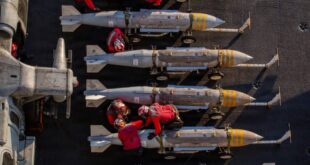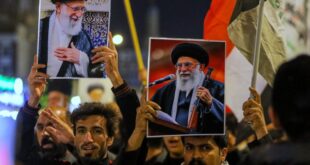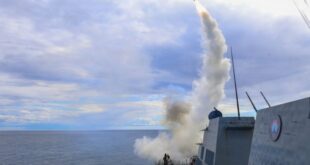Nagorno-Karabakh Conflict
In major escalation, deadly clashes erupted along state border between Armenia and Azerbaijan, killing at least 18, raising risk of further hostilities in August.
Following relative calm at frontline since Sept 2018 agreement that launched direct communication channel between Armenia and Azerbaijan, violence 12-16 July flared up at densely populated frontline between Movses in Armenia and Agdam in Azerbaijan during which both sides used heavy weaponry in severest escalation since April 2016; as of 21 July, Azerbaijan reported twelve military fatalities, including a well-regarded general, and one civilian killed, while Armenia reported four military casualties and one civilian wounded; cause of escalation remained unclear and both sides traded accusations of initiating first attack. Azerbaijan authorities 15 July reported detention of Armenian citizen after crossing into Azerbaijan’s southern exclave of Nakhchivan. Armenia 27 July also reported sniper fire killed one Armenian soldier along border. In absence of international mediation and with both sides on high alert, risk of further clashes in Aug remains high. Following mid-July deadly escalation, external actors called for deescalation: Kremlin 15 July called on both sides “to exercise restraint and honour their obligations as part of a ceasefire”; UN Sec-Gen Antonio Guterres 14 and 22 July urged both countries to exercise maximum restraint in clashes at frontline; EU foreign policy chief Josep Borrell 14 and 22 July called for both sides to defuse tensions. After escalation, tensions also rose between Armenian and Azerbaijani migrants and members of diaspora abroad: in Russia, home to one of largest Armenian and Azerbaijani diaspora populations, Moscow authorities 18 July arrested more than 25 individuals suspected of attacking several pedestrians and drivers; clashes 21 July broke out between Armenians and Azerbaijanis in Los Angeles, U.S..
Iraq
Tensions escalated between PM Mustafa al-Kadhimi’s govt and U.S. on one hand and Iran-backed militias on the other. Two unknown attackers 6 July shot and killed Hisham al-Hashemi, prominent security adviser of PM Kadhimi as well as critic of Sunni and Iran-backed armed groups in Iraq, in capital Baghdad; Kadhimi 7 July said govt would prosecute perpetrators as no one was “above the law”. Kataib Hizbollah 8 July warned of “escalation” if Kadhimi continued crackdown on militia after security forces late June carried out raid on group’s base in Baghdad suburb. U.S. General Kenneth McKenzie 7 July reaffirmed U.S. would continue military presence in Iraq; suspected Iran-backed militias 5, 19 July conducted rocket attacks against U.S. positions in Baghdad’s Green Zone, reportedly injuring one child. Iran-backed militia Saraya Thawrat al-Ishreen al-Thania 11 July attacked Iraqi vehicles transporting U.S. military supplies near Diwaniyah. Unclaimed rockets 24 July struck Basmaya base south of Baghdad hosting U.S. troops and 27 July struck Camp Taji in north. In reshuffle of security institutions, Kadhimi 4 July dismissed Faleh al-Fayyadh from important security posts; appointed new head of Iraqi National Security Service and national security adviser. Following unprecedented financial shortfalls and failed reform attempts, Kadhimi 11 July launched campaign against corruption to recover import tax revenue lost to bribery. Demonstrators 10-14 July took to streets in several southern provinces to protest low electricity supply; clashes between protesters and security forces 26 July killed two and wounded dozens during protest in central Baghdad over electricity cuts. Meanwhile, Iraqi security forces 11 July launched fourth phase of anti-Islamic State (ISIS) military operation; three militants reportedly killed, one arrested and 15 hideouts destroyed. UN expert at UN Human Rights Council 9 July called U.S. killing in Jan of Iran’s Qods Force chief and Popular Mobilisation Unit deputy chief “unlawful”; U.S. Sec State Mike Pompeo same day denounced UN report as “spurious”. After Turkish armed forces early July expanded operations against Kurdistan Workers Party in northern Iraq, President Barham Salih 16 July called for international stance against Turkey’s violations of Iraqi territorial sovereignty. Interior minister 29 July met Kurdistan Regional Government counterpart to discuss security cooperation in disputed territories.
 Eurasia Press & News
Eurasia Press & News


